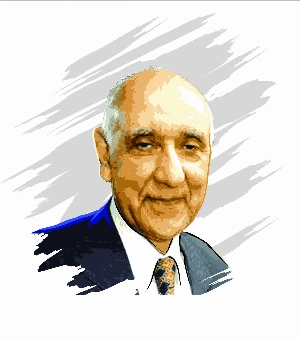Prime Minister Justin Trudeau’s New Year message was inspiring and honest – he admitted that the country faces serious challenges.
He said: “We marked the 150th anniversary of Confederation, and looked back on the remarkable achievements Canadians have made... We recommitted ourselves to our shared values, and we celebrated the diversity that makes us strong. Millions of people – of every background, origin, culture, and faith – have come together to make Canada the diverse, open, and prosperous country it is today.
“The 150th anniversary of Confederation was also a chance to reflect on the moments Canada has not lived up to its ideals. Indigenous peoples, and many Canadians, have faced prejudice and oppression in our history. In the New Year and the years to come, we must continue to work to right these wrongs, and make sure everyone has a real and fair shot at success...”
Chances are, most Canadians agreed. They admire the prime minister who, perhaps more than any other world leader, mingles freely with the common people and relishes their company. However, after two years in office, his popularity has begun to wane.
But as 2017 made way for 2018, it was the weather, rather than politics, that dominated the thinking of Canadians. On New Year’s Day the average temperature was -24.6 C, the coldest since 1899. During winters it gets extremely cold but then warms up and the cycle gets repeated.
This year it became cold – and stayed cold. The Norwegian Meteorological Institute reported that parts of Canada were at times colder this winter than the North and South Poles. They were minus 23 C while Saskatoon, to give one example, plunged way below minus 29 C. Strong winds made it feel like minus 40 C. Ottawa Public Health says frostbite danger kicks in at -25 C.
The media reported that parts of Canada were even colder than Mars for brief periods. The rover Curiosity, while roaming around, encounters extreme shifts of temperature, sometimes going 80 below. But on Canada’s coldest days, when the rover reported only -23 C degrees on Mars, parts of Canada were colder.
Canada is vast. Its 10 million square kilometers are mostly desolate. Only parts adjoining the United States are warmer. Even so some refugees, entering Canada from the US, suffered frostbite or lost fingers.
Fortunately, most Canadians live in heated homes. Buses, trains and cars also are heated. But if a car broke down in Ottawa, for example, the rescue by the Canadian Automobile Association took up to 17 hours. People abandoned their stalled cars and took a ride to go home or to work.
Normally, some 20,000 people enjoy ice skating on Rideau Canal in Ottawa every day when it is cold, but not excessively. It is the world’s longest skating rink. Some people even go ice skating on Dow’s Lake, confident in the thick ice. They sometimes miscalculate and when the ice gives way, they end up in freezing water. This year many cities from Ottawa to Edmonton cancelled New Year celebrations outdoors because of the fear of frostbite.
Canada is cold but its people are resolute and technology has simplified life for most. Homes, apartments, offices, shopping malls, cars, buses, trains and taxis are heated and even the icy blasts of winter become an inconvenience rather than impediments to a normal life.
Many even love winter and enjoy skiing, ice skating and winter sports. Some even jump into freezing water for charity. For 25 years, people have been participating in the Perth Polar Bear plunge on the Tay River, raising more than $274,000 for charity, such as the Children’s Hospital. Some people, who run every day for exercise, continue to do so in winter, defying the -25 C degrees. Others drive to shopping malls and stroll in the comfort of a heated building.
In Canada, some 35,000 people sleep on the streets the year around. In 2017, some 80 reportedly died in Toronto. Authorities and private organizations try to provide them food and shelter. The City of Ottawa this year put families in hotels and motels to shield them from the cold.
Ironically, the cold weather increases the danger of fires. Heaters and furnaces going full blast cause more fires in the winter than in other seasons.
In some cities, the weight of the ice breaks tree branches that crash onto electric wires and cause blackouts. Firefighters and repairmen work overtime in the cold to restore power.
Now the regular pattern of winter seems to have returned. It is still cold, but the temperature goes up occasionally, melting the snow from the roofs and turning mountains of snow into mere hills. That is what Ottawa people are used to. They are cheerfully putting up with winter but are hoping for an early spring when birds will chirp, flowers will bloom, leaves will adorn trees, fruits will multiply and summer will make life thoroughly enjoyable.
-Mohammed Azhar Ali Khan is a retired Canadian journalist, civil servant and refugee judge.
